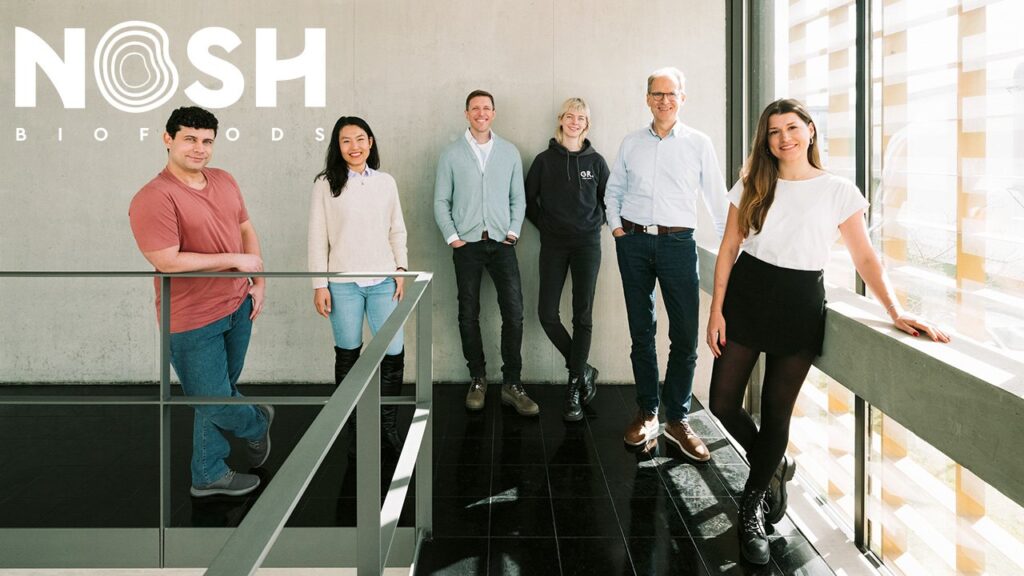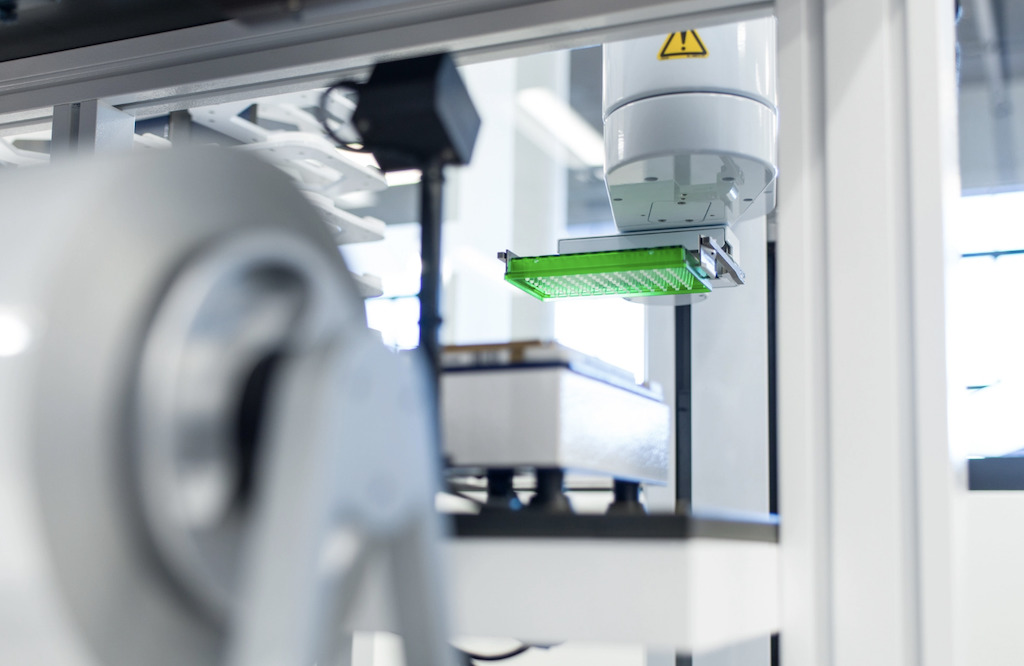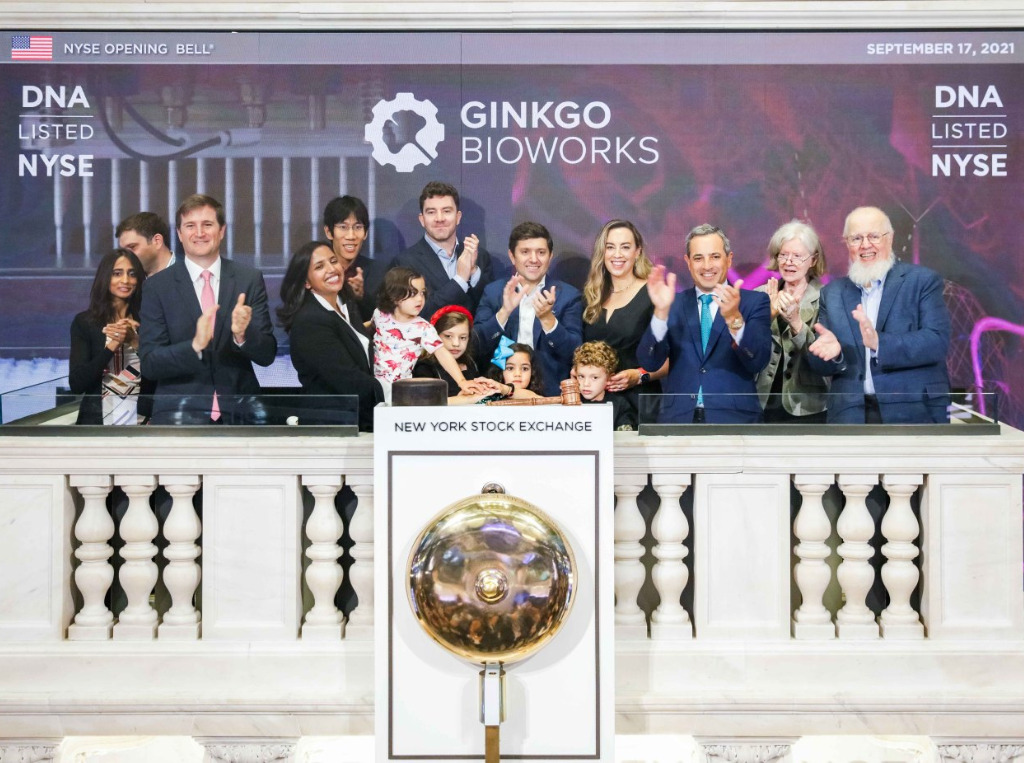Flawless Fungi: EU & US Startups Team Up to Develop Tastier Meat Alternatives
5 Mins Read
German mycoprotein startup Nosh.bio has partnered with Boston-based synthetic biology firm Ginkgo Bioworks to leverage the latter’s cell programming platform to find protein-producing fungi strains with superior sensory profiles. The AI-led process will help Nosh.bio develop a single-ingredient meat alternative.
Nosh.bio creates functional ingredients from using biomass fermentation for plant-based food products, while Ginkgo hosts a cell programming and biosecurity platform to help companies manufacture more sustainable alternatives for their products.
The partnership will see Nosh.bio use Ginkgo’s Strain Optimization Services and leverages its ultra-high-throughput encapsulated screening capabilities to screen for fungi strains that can create more flavourful, nutritious alt-proteins that can deliver a savoury and “naturally meaty” flavour in food products.
In search of the perfect fungal ingredient
The two companies argue that animal-free protein still faces a challenge in creating delicious alt-meat products that are less processed and more affordable than conventional meat. Multiple studies have shown the importance of taste, texture and price parity to the growth of this sector. In addition, ‘clean-labels’ with shorter ingredient lists and fewer processed elements are equally important to consumers.
Nosh.bio’s tech platform uses fungal biomass to develop single-ingredient mycoprotein-derived meat alternatives. The startup, which raised €3.2M in a seed funding round earlier this year, says red meat products – like steak – are the most challenging product to recreate, and current alternatives can contain many ingredients and chemical additives. It adds that its “highly efficient” and “cost-effective” production process can make alt-meats that taste and feel just like conventional meat but carry better health credentials.
To enable the creation of such an ingredient, Ginkgo hopes to discover a fungi strain with “higher native proteins” involved in achieving the superior qualities Nosh.bio is looking for in its plant-based meat products. The cell programming platform will run a mutagenesis and screening campaign with EncapS, its proprietary encapsulation and screening technology, which is able to search through up to one million variants in a single run. This will help select the best-performing strains for further development.

“We expect to have the first results within the next four to six months,” a Nosh.bio spokesperson told Green Queen. “Depending on the level of success achieved, we could already start incorporating these new strains into our production process and catering the industry with this game-changing solution.”
They said the company is currently using filamentous fungi: “We can produce several single-ingredient meat analogues, from fish to pork. Besides this, our solutions can be incorporated as ingredients in different food products, improving taste, texture and juiciness of alternative protein products.
“With our proprietary production process, we can also provide highly functional products, which can be used to replace chemical stabilisers (for instance, in vegan ice creams), or replace animal-based ingredients – like egg whites – in products like waffles, pancakes and even mayonnaises. On this last one, we can reduce the oil content by almost 80%.”
Accelerating the alt-protein shift
The spokesperson confirmed that Nosh.bio’s fungi strain is not considered a novel food under EU regulations, and thus doesn’t need to climb any regulatory ladders. The startup is a B2B business, and hopes to accelerate the shift from animal to alternative proteins.
“We believe that partnering with existing food companies – which have already invested a lot on brand-building, supply chain and product development – and providing them with the next superior suite of solutions, is the way to go. However, we truly believe in the superior quality of our solutions, and perhaps you might be able to find products having a ‘Nosh Inside’ logo in the future.”
Nosh.bio co-founder and CEO Tim Fronzek added: “Nosh.bio is eager to enable the transition from animal-based to animal-free products. Our affordable, high-quality plant-based ingredients can build a product that’s even closer to meat in taste and texture than alt-protein options currently on the market. What really excites us about partnering with Ginkgo is their accelerated screening technology that can help us pinpoint and develop a super ‘meaty’ mycoprotein.”

Kalpesh Parekh, VP of business development at Ginkgo Bioworks, added: “Our proprietary encapsulation and screening technology can expeditiously deliver valuable insights that enable our partners to optimise their R&D efforts and overall product.”
Ginkgo, which became a public company on the NYSE in 2021 with a $15B valuation after closing a SPAC deal with Soaring Eagle Acquisition Corp, already has link-ups with Swiss ingredients giant Givaudan for fermentation-based sustainable ingredients, alt-materials startup Bolt Threads for its b-silk protein, and pharmaceutical giant Pfizer, among others. Launched in 2008, its tech has also led to several spinoff companies, like Motif FoodWorks and Joyn Bio (a joint venture with Bayer).
Artificial intelligence and alt-protein
As AI makes it into our everyday lives more and more, it’s becoming a part of the alt-protein industry as well, with companies leveraging the future-facing tech to solve current and forthcoming problems. Last month, sustainability non-profit Food System Innovations partnered with AI expert Noa Weiss to launch GreenProtein AI, which uses machine learning to optimise the extrusion and texture of plant-based meat.
AI has already been in use for years by Chilean food tech brand NotCo for its plant-based alternatives. Its patented AI tech, Giuseppe, is the brains behind the company’s alt-milks, mayo and burgers. Similarly, Singapore’s Howw Foods uses AI to make Hegg, its vegan powdered egg product.
Meanwhile, many companies have collaborated with AI firms to improve the development of alt-protein products. Bel Foods – the French dairy giant behind Babybel cheese – has partnered with California’s Climax Foods to make vegan products, while Danone is working with Californian AI firm Brightseed to discover hidden nutrients and compounds in plant crops. And Colorado-based mycelium meat maker Meati collaborated with AI company PIPA to speed up and expand its understanding of the health and nutrition credentials of its nutrient-rich products.
Some companies have used AI as a marketing tool. US startup Pleese Foods unveiled a campaign in August that employed AI to generate whimsical imagery of cheese as a flourishing crop and being grown on trees.
This story was updated on October 4 to include Nosh.bio’s comments to Green Queen.



